The travel industry has come a long way in the past decade, thanks to technological advancements. Artificial Intelligence (AI) is one such technology that has significantly impacted the industry. It has revolutionized how we travel, from booking flights to finding accommodation and planning our itineraries. In this blog, we will discuss the future of travel and how AI is revolutionizing the industry.
Effective Customer Service:
Chatbots using AI are becoming more and more common in the travel sector. These can respond immediately to client inquiries and do so around the clock. Additionally, AI-powered chatbots can learn from user interactions and develop better responses.
Personalization:
Travel agencies may now provide consumers with personalized experiences thanks to AI. It can analyze consumer data and provide them with tailored recommendations using machine learning algorithms. For instance, AI-powered chatbots can offer tailored suggestions for trips, accommodations, and activities based on the user’s preferences.
Safety and Security:
The travel sector is using AI to improve safety and security. For instance, facial recognition technology is being used in airports to identify and follow the movements of travellers. This contributes to quicker lines and better security.
Simplified Procedures:
AI can speed up travel booking by automating tedious operations like data entry and verification. This can save clients and travel agencies time, allowing them to concentrate on other crucial travel-related details.
Forecasting Analytics:
Travel agencies can use AI to predict demand and trends. It may foretell which locations will be favoured by examining data such as search inquiries, reservations, and social media trends, and it can then modify its services appropriately.
AI Technology Apps for Travel Planning
ChatGPT:
An AI-powered chatbot called ChatGPT can help travellers plan their trips and get recommendations. The chatbot may respond to inquiries regarding destinations, flights, hotels and activities and offer tailored recommendations depending on user preferences.
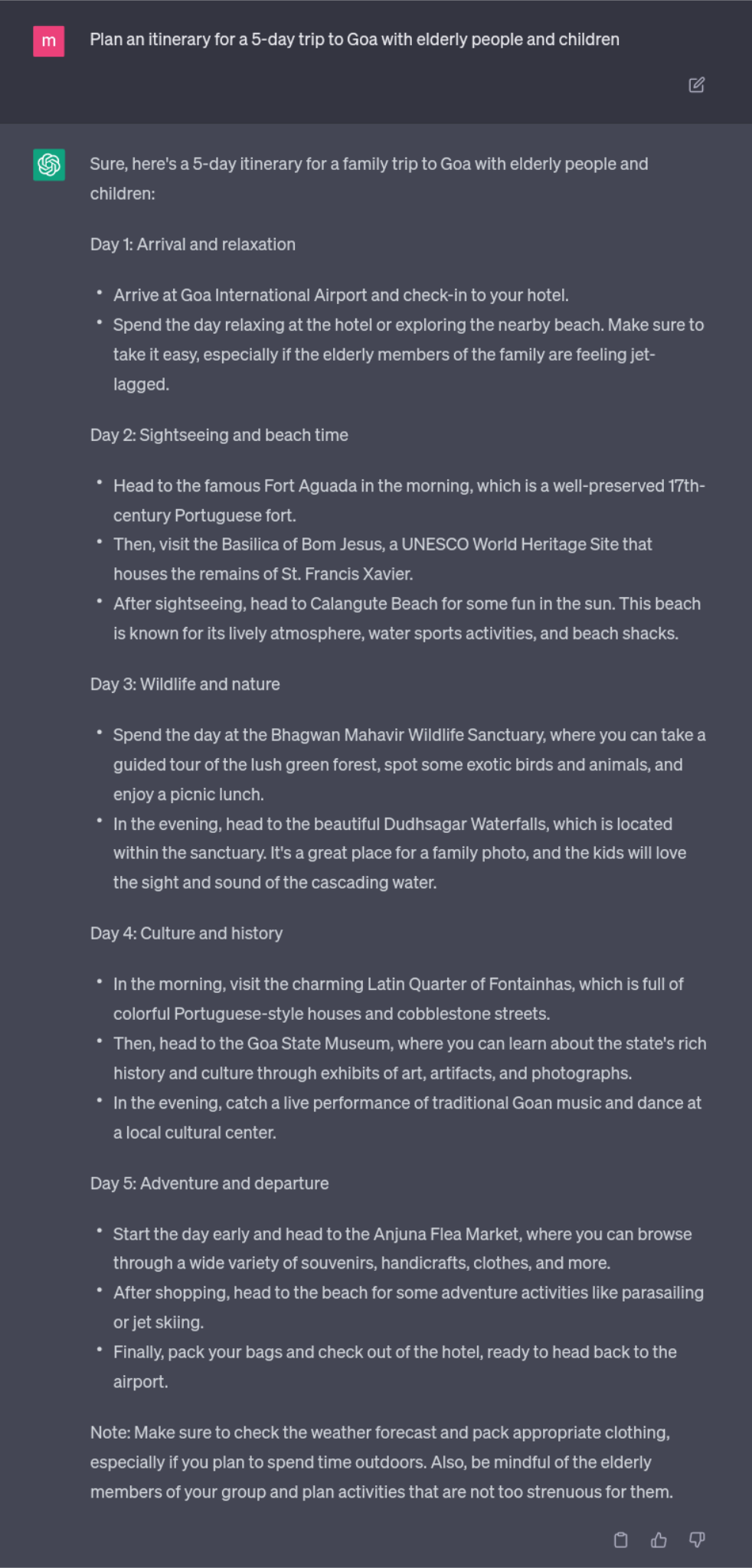
Roam Around:
It is a relatively simple tool. Instead, it is easier to operate than understand how to use the correct prompt in the original ChatGPT to achieve your goals. The app requires only two details: the city you intend to visit and the days you must stay there. Then, this data is presented in a formatted way.
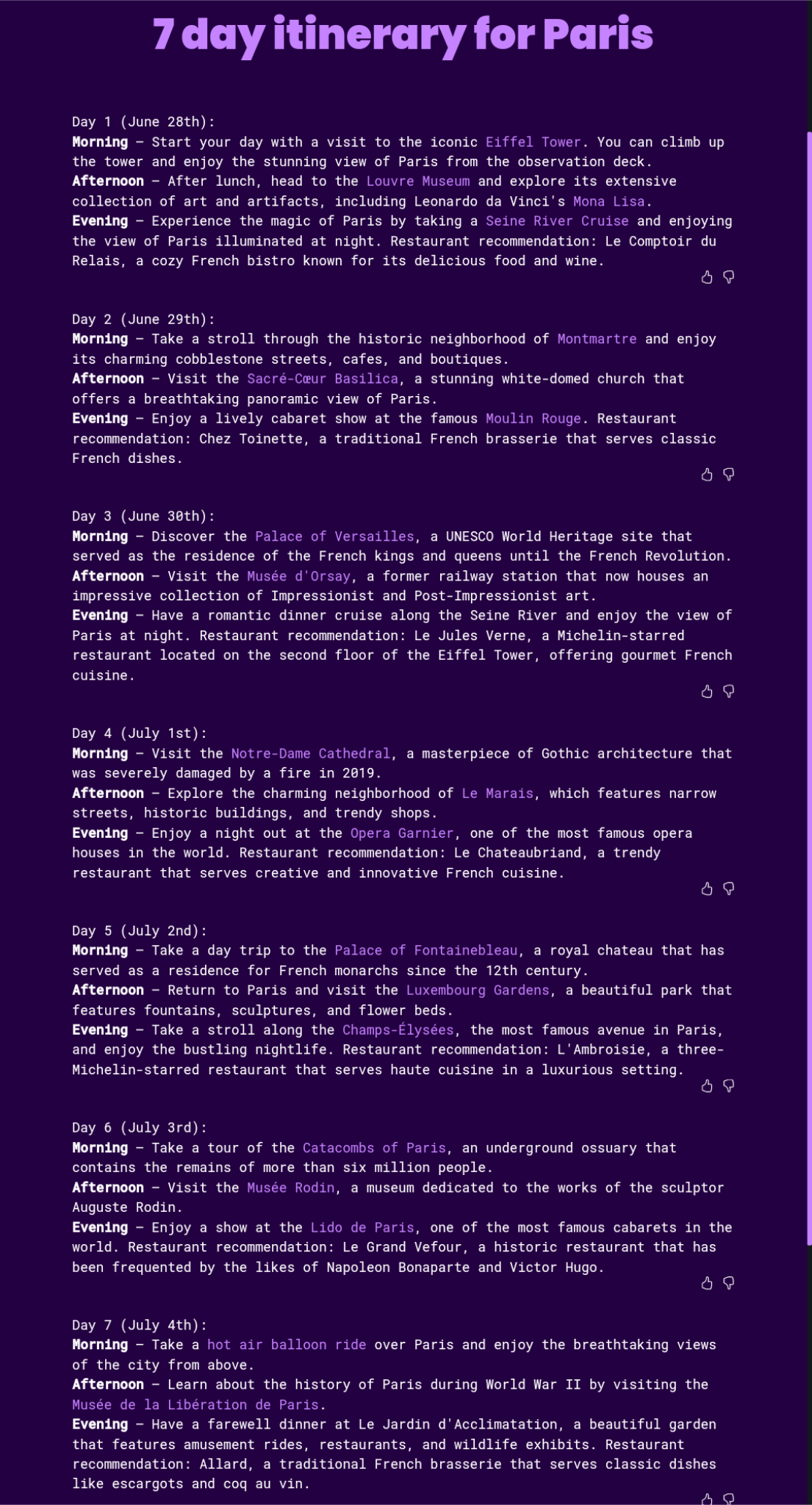
Roamr:
Let’s Roam offers flexible and adaptable self-guided tours, enabling visitors to take their time and explore places comfortably. The app employs GPS technology to direct visitors to each place of interest and provide information about the location and its history, allowing users to access the tours. A fantastic choice for tourists seeking a more flexible and personalized trip encounter.
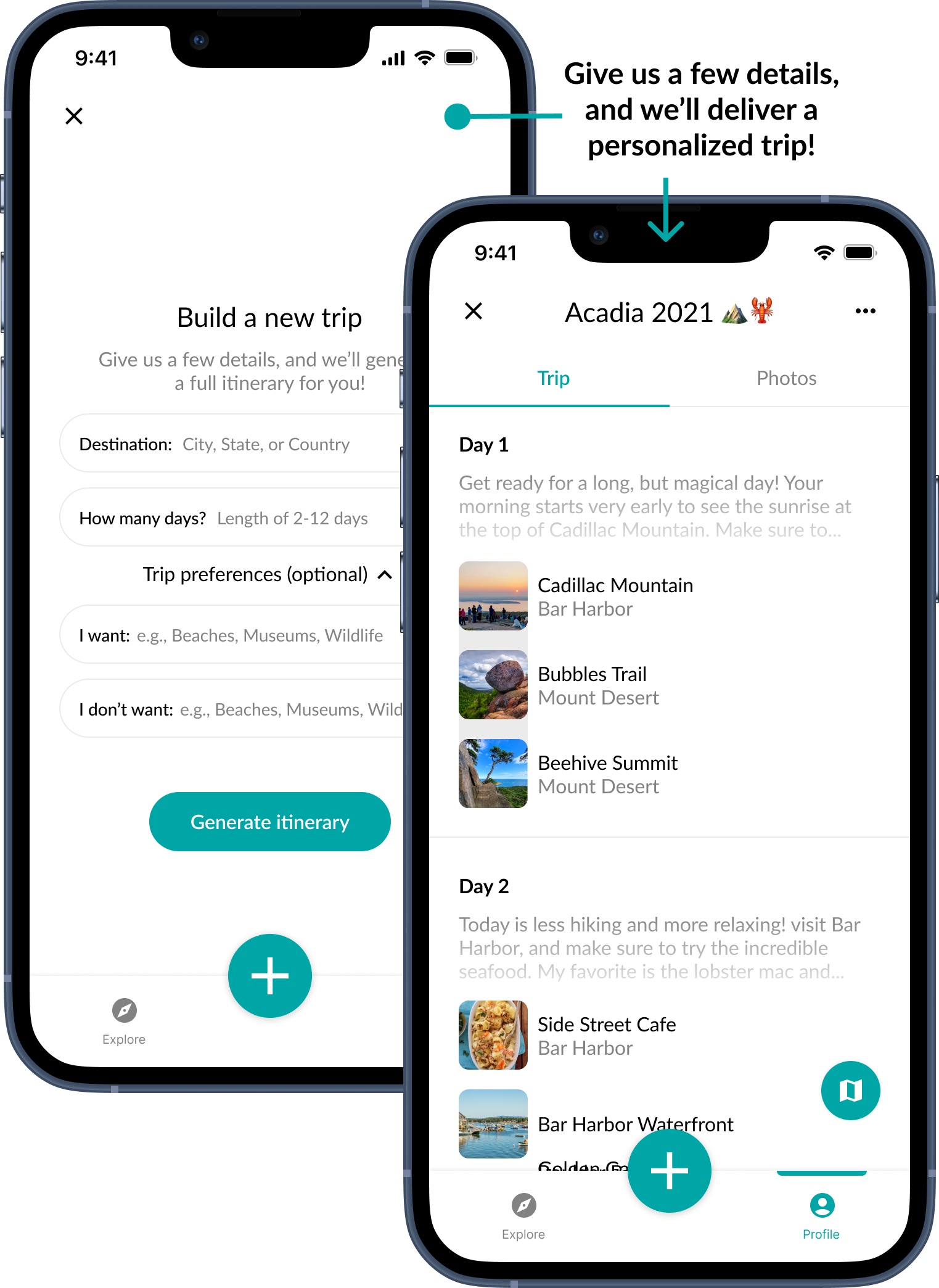
iPlan.AI:
It is a platform for AI-powered travel planning platform that offers individualized travel suggestions and itineraries through machine learning algorithms and natural language processing. The website was made to make it simpler for people to plan their travels and book them.
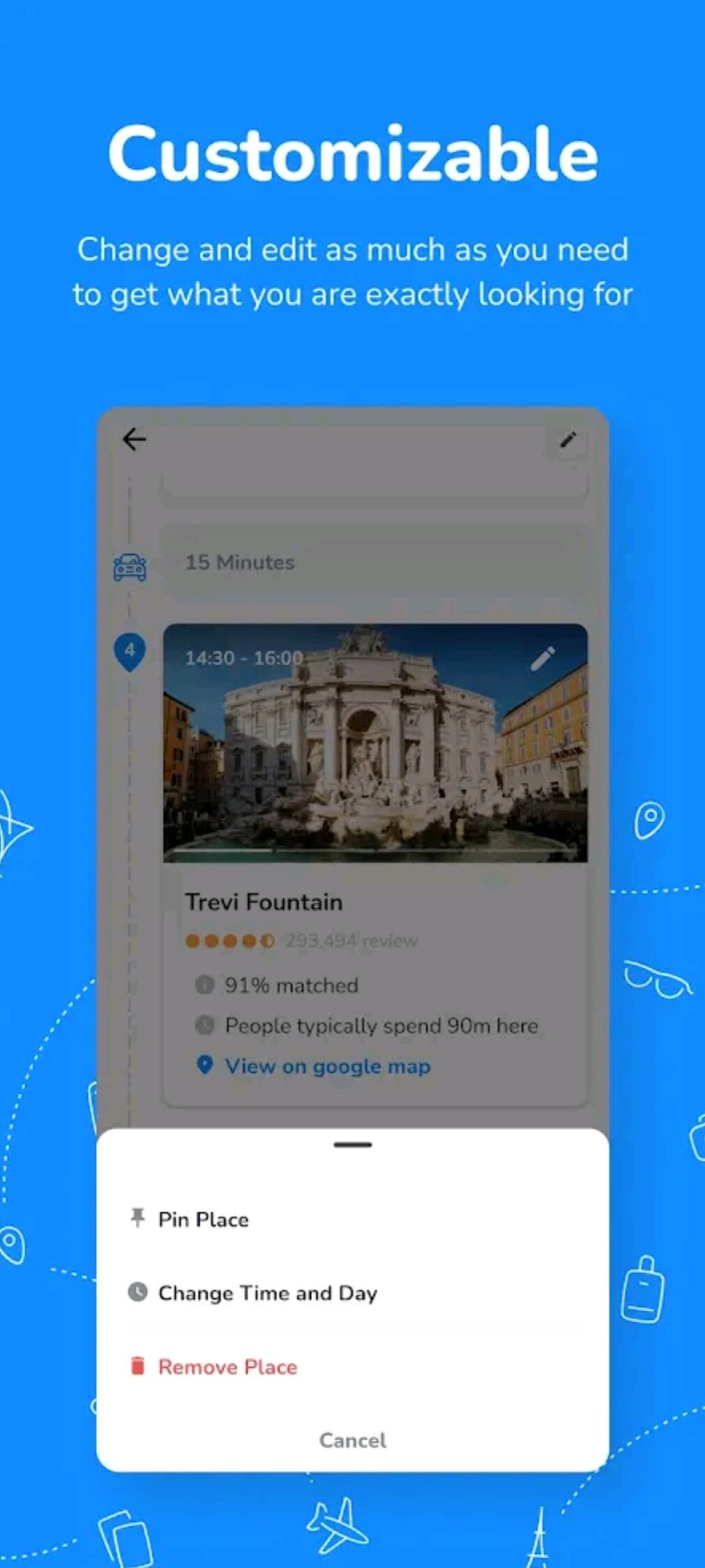
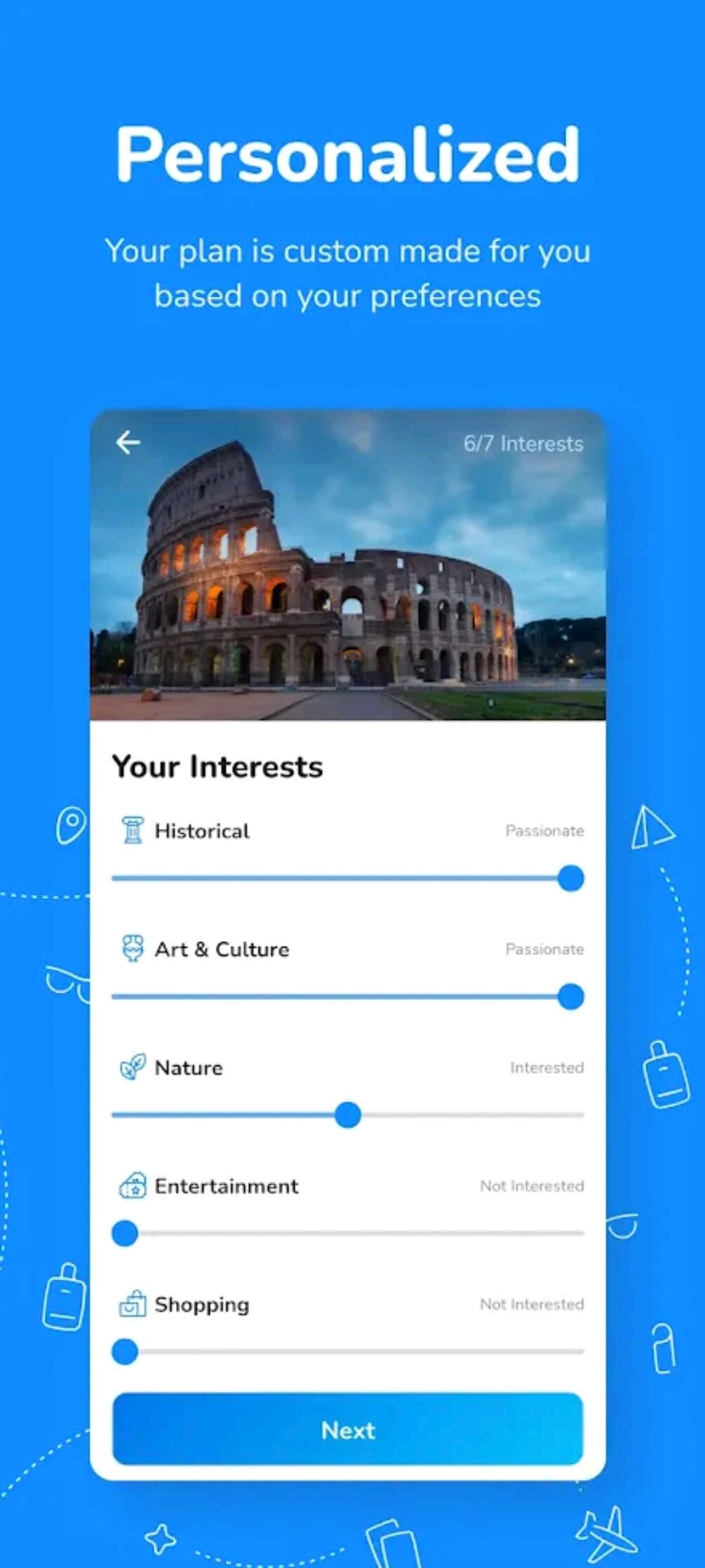
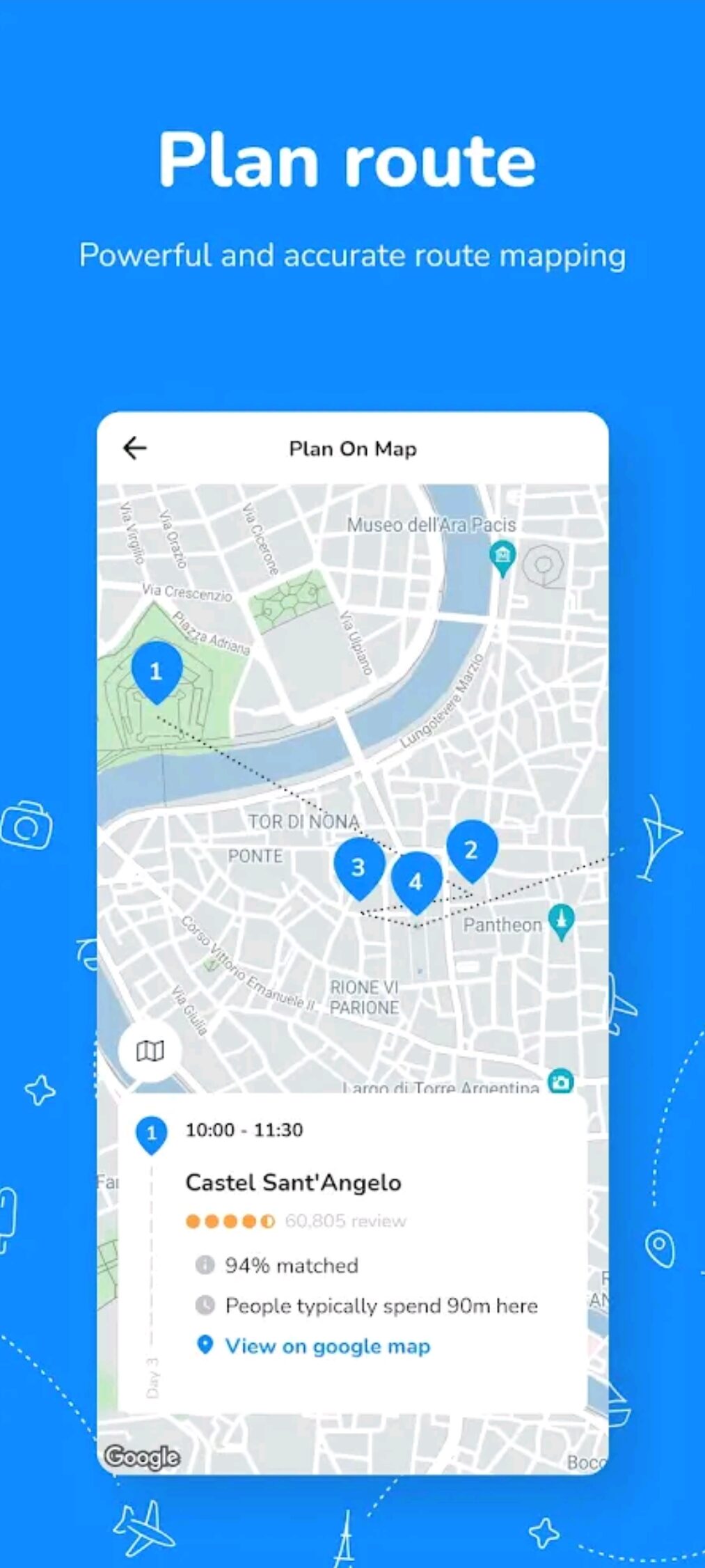
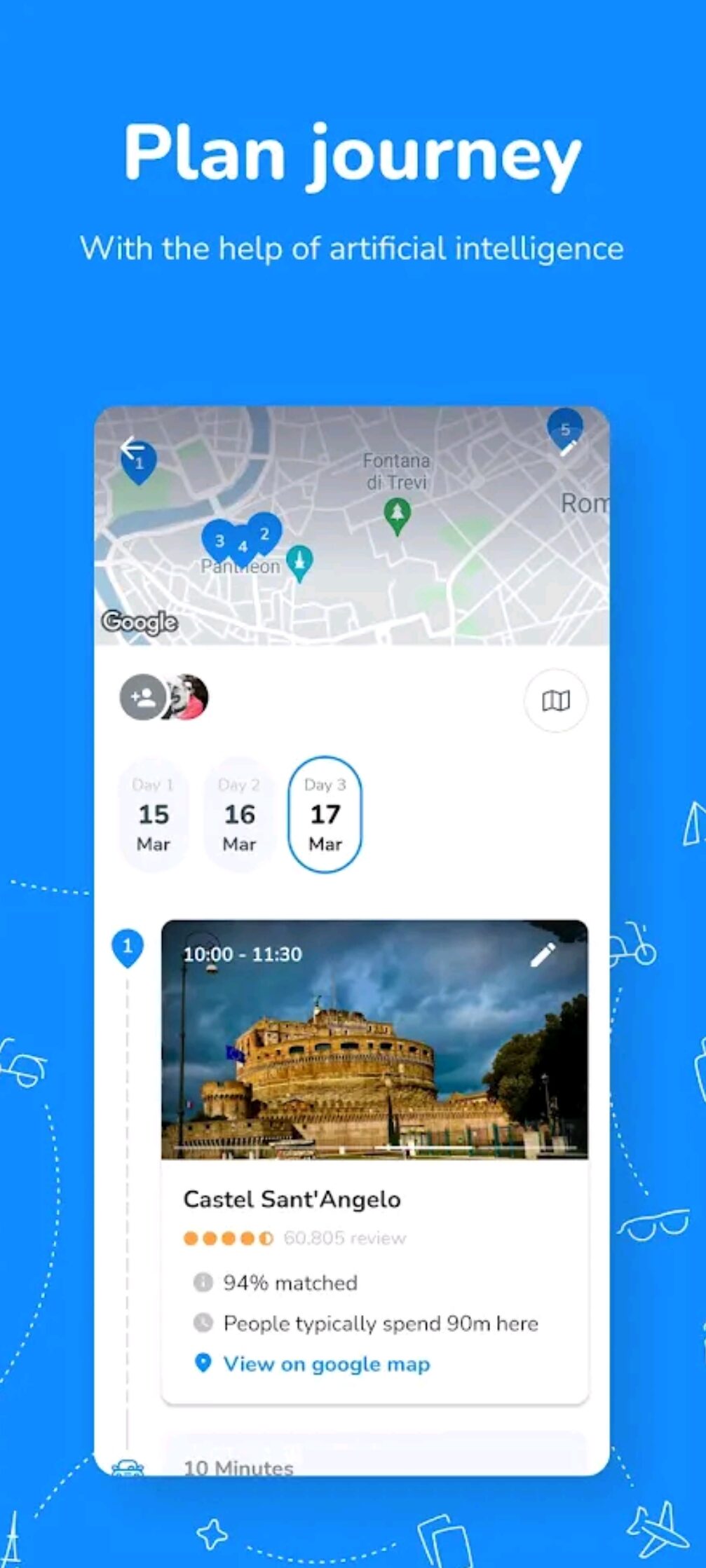
Curiosio:
It specialises in assisting you in creating a road trip itinerary that takes you to numerous significant countries on every continent.
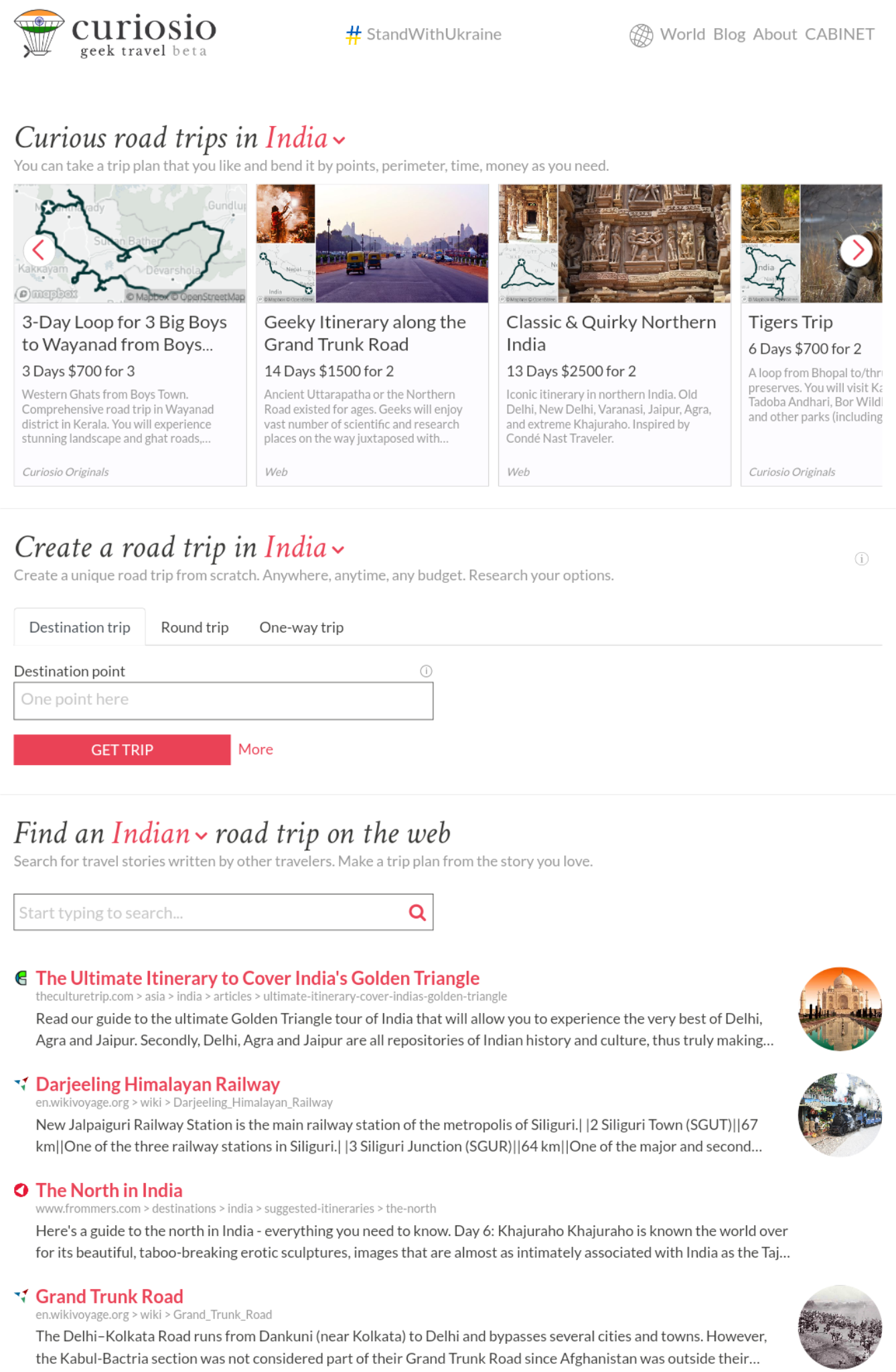
Conclusion
In conclusion, artificial intelligence is revolutionizing the travel sector and can potentially have a more significant impact in the future. AI is revolutionizing travel in many ways, including personalization, excellent customer service, and increased safety. We anticipate seeing even more cutting-edge application cases for AI in the tourism sector as the technology progresses.
Click here to check out our blog on Travel Apps for your next Adventure
